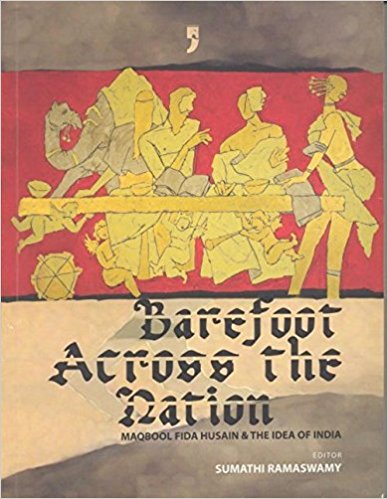When thinking about the significance and meaning of images, one must remember that art works are produced through specific historical contexts, and then subsequently encountered in diverse settings by people with wide ranging ideological dispositions. Barefoot Across the Nation: Maqbool Fida Husain and the Idea of India is a collection of essays on the artist, edited by Sumathi Ramaswamy, in which she under takes the monumental task of bringing together a broad range of essays, dealing nevertheless quite specifically, with the culture of censorship that engulfed Husain’s existence and his work during the last decades of his life; despite his canonical status within the history of Modernism in India. An unorthodox book, given the fact that most monographs on artists, especially Husain, have tended to be glossy, light reads, this volume is an academically rigorous venture and revolves around the dialectics of possession and loss of identity through exile, of one of India’s foremost artists.
The thirteen essays in the book, all impressively researched and carefully argued, were first presented in 2009 at a conference in Duke University and published just before the artist passed away, whilst living in exile in Qatar. Without doubt this volume is essential reading for all those who are concerned with the escalating climate of censorship and content policing of not just the arts but even everyday expression.

